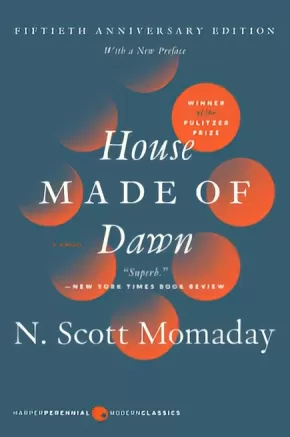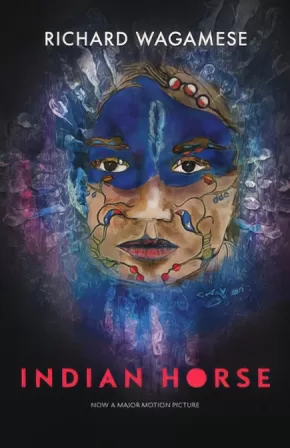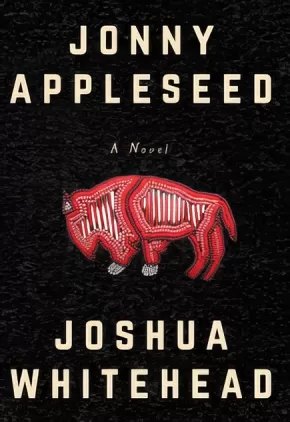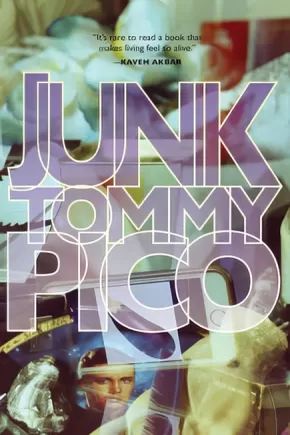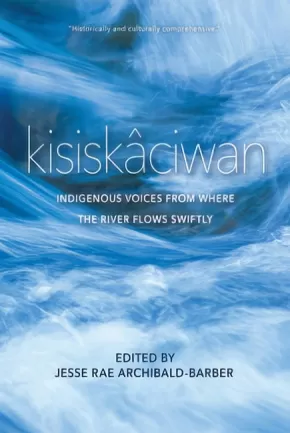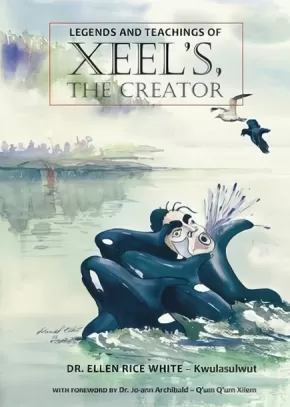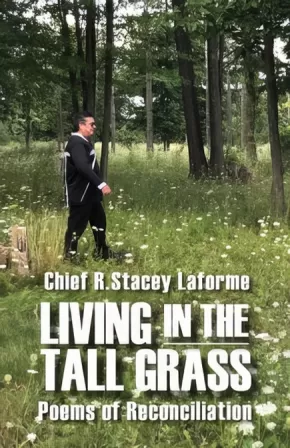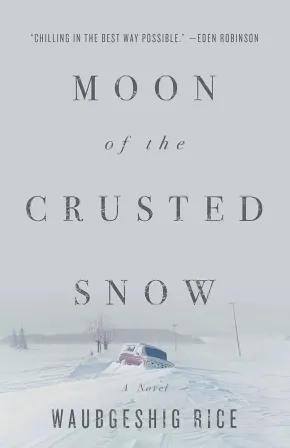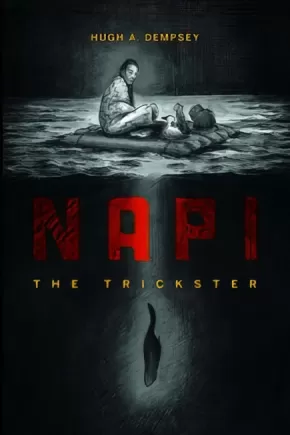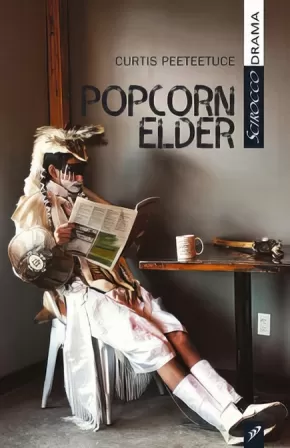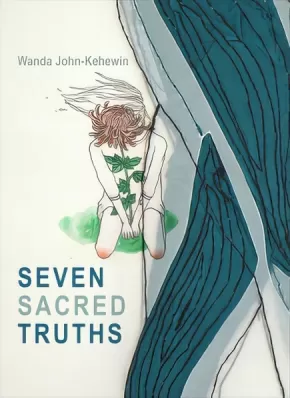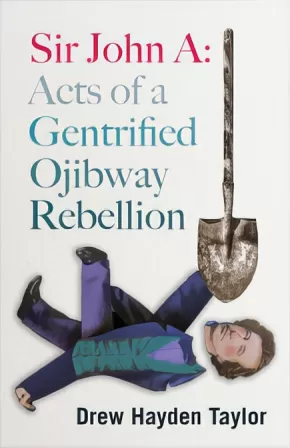
Fiction
406
-
420
of
568 Results;
Sort By
Go To
of 38
House Made of Dawn: A Novel (50th Anniversary Edition)
$21.00
Format:
Paperback
Text Content Territories:
Indigenous American; Native American;
Grade Levels: 12; University/College;
ISBN / Barcode: 9780062909954
Synopsis:
Synopsis:
A special 50th anniversary edition of the magnificent Pulitzer Prize-winning novel from renowned Kiowa writer and poet N. Scott Momaday, with a new preface by the author.
A young Native American, Abel has come home from war to find himself caught between two worlds. The first is the world of his father’s, wedding him to the rhythm of the seasons, the harsh beauty of the land, and the ancient rites and traditions of his people. But the other world—modern, industrial America—pulls at Abel, demanding his loyalty, trying to claim his soul, and goading him into a destructive, compulsive cycle of depravity and disgust.
An American classic, House Made of Dawn is at once a tragic tale about the disabling effects of war and cultural separation, and a hopeful story of a stranger in his native land, finding his way back to all that is familiar and sacred.
Reviews
“Both a masterpiece about the universal human condition and a masterpiece of Native American literature. . . . A book everyone should read for the joy and emotion of the language it contains.” — The Paris Review
“A new romanticism, with a reverence for the land, a transcendent optimism, and a sense of mythic wholeness...Push[es] the secular mode of modern fiction into the sacred mode, a faith and recognition in the power of the world.” — American Literature
Additional Information
224 pages | 5.31" x 8.00"
Indian Act: Residential School Plays
$29.95
Editors:
Format:
Paperback
Text Content Territories:
Indigenous Canadian;
ISBN / Barcode: 9781770919143
Synopsis:
Synopsis:
Indian Act is a tribute and thank you to those who survived the Indian Residential School system so that future generations could be free to pursue their lives unhindered by educationally enforced lowered expectations and institutionalized abuse. Plays by contemporary First Nations and Métis playwrights cover the broad scope of residential school experiences, all kinds of characters, and no stereotypes, giving voice to those who could not be heard.
Includes the plays:
Bunk #7 by Larry Guno
God and the Indian by Drew Hayden Taylor
They Know Not What They Do by Tara Began
A Very Polite Genocide or The Girl Who Fell to Earth by Melanie J. Murray
Kihew by Curtis Peeteetuce
Dear Mr. Buchwald by Yvette Nolan
Educator Information
Recommended resource for Grades 10-12 English Language Arts, Drama, and Acting.
Caution: Some plays contain mature subject matters and cover themes of substance abuse, sexual and physical violence, etc. Some plays are not appropriate for high school use and may be better suited for college-level courses.
Additional Information
392 pages | 6.00" x 9.00"
Indian Horse (Special Edition)
$21.95
Format:
Paperback
Text Content Territories:
Indigenous Canadian; First Nations; Anishinaabeg; Ojibway;
ISBN / Barcode: 9781771621908
Synopsis:
Synopsis:
Saul Indian Horse has hit bottom. His last binge almost killed him, and now he’s a reluctant resident in a treatment centre for alcoholics, surrounded by people he’s sure will never understand him. But Saul wants peace, and he grudgingly comes to see that he’ll find it only through telling his story. With him, readers embark on a journey back through the life he’s led as a northern Ojibway, with all its joys and sorrows.
With compassion and insight, author Richard Wagamese traces through his fictional characters the decline of a culture and a cultural way. For Saul, taken forcibly from the land and his family when he’s sent to residential school, salvation comes for a while through his incredible gifts as a hockey player. But in the harsh realities of 1960s Canada, he battles obdurate racism and the spirit-destroying effects of cultural alienation and displacement. Indian Horse unfolds against the bleak loveliness of northern Ontario, all rock, marsh, bog and cedar. Wagamese writes with a spare beauty, penetrating the heart of a remarkable Ojibway man.
Awards
- 2013 Burt Award for First Nations, Métis, and Inuit Literature
- 2013 First Nation Communities Read Award
Reviews
"Richard Wagamese is a master storyteller, who blends the throb of life with spiritual links to the land, hard work, and culture to find success, his words take you into the soul of Indian Horse, to experience his pain, his growing resentments, his depression, and his fear which has to be faced if he is to regain the joy of life. This book is meant for youth, adults, and elders, to be shared, to be lived, and to be treasured for the clear message of hope and the need to go the distance." — Wawatay News
“…The hockey chapters are compelling; they evoke Sherman Alexie’s fiction that examines contemporary life on American Indian reservations through the lens of basketball. But it is as a story of reconciliation that this novel reveals Wagamese’s masterful subtly…In a single image, Wagamese complicates in blinding ways the entire narrative; in a single page, Indian Horse deepens from an enjoyable read to a gripping critique of Canada.” — Kyle Carsten Wyatt, The Walrus, 2012
Educator Information
Grades 10-12 BC English First Peoples resource for units on Lost People, Reconciliation, and Place-Conscious Learning.
Caution: Substance Abuse, Mature Content
Additional Information
232 pages | 5.50" x 8.50"
This special edition of Richard Wagamese’s novel Indian Horse has been released to coincide with the release of the film Indian Horse in the spring of 2018.
Jonny Appleseed
$19.95
Format:
Paperback
Text Content Territories:
Indigenous Canadian; First Nations;
Grade Levels: 12; University/College;
ISBN / Barcode: 9781551527253
Synopsis:
Synopsis:
A tour-de-force debut novel about a Two-Spirit Indigiqueer young man and proud NDN glitter princess who must reckon with his past when he returns home to his reserve.
"You're gonna need a rock and a whole lotta medicine" is a mantra that Jonny Appleseed, a young Two-Spirit/Indigiqueer, repeats to himself in this vivid and utterly compelling debut novel by poet Joshua Whitehead.
Off the reserve and trying to find ways to live and love in the big city, Jonny becomes a cybersex worker who fetishizes himself in order to make a living. Self-ordained as an NDN glitter princess, Jonny has one week before he must return to the "rez"--and his former life--to attend the funeral of his stepfather. The seven days that follow are like a fevered dream: stories of love, trauma, sex, kinship, ambition, and the heartbreaking recollection of his beloved kokum (grandmother). Jonny's life is a series of breakages, appendages, and linkages--and as he goes through the motions of preparing to return home, he learns how to put together the pieces of his life.
Jonny Appleseed is a unique, shattering vision of First Nations life, full of grit, glitter, and dreams.
Awards
- 2021 Canada Reads winner
Reviews
"If we're lucky, we'll find one or two books in a lifetime that change the language of story, that manage to illuminate new curves in the flat vessels of old letters and words. This is one of those books. Jonny Appleseed gifts us with clarity in the shape of sharp, and medicine in the guise of soft -- and a sexy, powerful, broken, beautiful hero who has enough capacity in the dent of a clavicle to hold all the tears of his family. This book gives us back the land of curb and field, trailer and ledge, and the community -- in all its rusted and complicated glory. Most importantly, this book gifts us with the opportunity to hear the innovative and the ancient in the prose of a new literary goddess, Joshua Whitehead." ―Cherie Dimaline, author of The Marrow Thieves
"Joshua Whitehead redefines what queer Indigenous writing can be in his powerful debut novel. Jonny Appleseed transcends genres of writing to blend the sacred and the sexual into a vital expression of Indigenous desire and love. Reading it is a coming home to bodies, stories, and experiences of queer Indigenous life that has never been so richly and honestly shown before. This book is an honour song to every queer NDN body who has ever lived and it will transform the universe with its beauty and magic." ―Gwen Benaway, author of Passage
Educator Information
Caution: graphic/mature content such as sexual descriptions.
Additional Information
224 pages | 5.50" x 8.00"
Junk
$21.95
Format:
Paperback
Text Content Territories:
Indigenous American;
Grade Levels: University/College;
ISBN / Barcode: 9781941040973
Synopsis:
Synopsis:
From 2018 Whiting Award winner Tommy Pico, Junk is a book-length break-up poem that explores the experience of loss and erasure, both personal and cultural.
The third book in Tommy Pico’s Teebs series, Junk is a breakup poem in couplets: ice floe and hot lava, a tribute to Janet Jackson and nacho cheese. In the static that follows the loss of a job or an apartment or a boyfriend, what can you grab onto for orientation? The narrator wonders what happens to the sense of self when the illusion of security has been stripped away. And for an indigenous person, how do these lost markers of identity echo larger cultural losses and erasures in a changing political landscape? In part taking its cue from A.R. Ammons’s Garbage, Teebs names this liminal space “Junk,” in the sense that a junk shop is full of old things waiting for their next use; different items that collectively become indistinct. But can there be a comfort outside the anxiety of utility? An appreciation of “being” for the sake of being? And will there be Chili Cheese Fritos?
Awards
- NPR Book of the Year Award
- Winner of the 2018 Whiting Award
Reviews
"Tommy Pico's books are contemporary epics. He writes poetry of rare brilliance, assured in form and forceful in its interrogation of myth and cultural expectations and self."—Whiting Award Committee
"Tommy Pico's new collection, Junk, is nimble as jazz, intentionally unstable, a queer Beat novel in verse for the social media age." —Gregory Cowles, The New York Times Book Review
"Junk is a true American odyssey, complete with a reluctant hero who defies all odds to survive. Repulsed by the trashiness of empire, the violence of occupation, this book nonetheless searches in earnest for real tenderness, a romance that isn’t corny. . . . This is poetry of the highest order, on the level of a pop song, with the crystalline visions of a seer. I consumed it greedily, repeatedly, and am forever changed because of it." —Jenny Zhang, author of SOUR HEART
"Tommy Pico’s complex and lush third collection, Junk, explodes, rewinds, meditates, and explodes again. It binges and purges—on class, identity, sex, politics, snacks, comfort, and fear. . . . Pico is a master of inclusion, of elevating the mundane to the sublime, of examining absurdity and grave seriousness with equal measure. This is an ambitious long poem, and Pico is uniquely qualified to both drag and celebrate modern day consumption and indulgence with graceful humor and grit."—Morgan Parker, author of THERE ARE MORE BEAUTIFUL THINGS THAN BEYONCE
"Whiting Award-winner Tommy Pico follows his cult favorites Nature Poem and IRL with a gloriously wide-ranging monologue on love and friendship, queer and indigenous identity, Janet Jackson and nacho cheese. Pico builds his own 21st-century poetics, junk and all—and as he writes, 'It's important / to value the Junk, Junk has the best stories.'" —NPR
"Build[s] into an apocalyptic crescendo via Pico’s propulsive fervor . . . Pico demonstrates that a person’s many selves, traumas, anxieties, hookups, and breakups can become a marker of courage and survival."—Publishers Weekly, Starred Review
Additional Information
80 pages | 6.00" x 9.00"
kisiskaciwan: Indigenous Voices from Where the River Flows Swiftly
$39.95
Editors:
Format:
Paperback
Text Content Territories:
Indigenous Canadian;
ISBN / Barcode: 9780889775428
Synopsis:
Synopsis:
This groundbreaking anthology from territory that is now Saskatchewan, kisiskâciwan, includes rich oral narratives from Cree, Saulteaux, Nakoda, Dakota, Dene, and Métis cultures; early writings from Cree missionaries; speeches and letters by Treaty Chiefs; stories from elders; archival discoveries; and contemporary literary works in all genres.
Historically and culturally comprehensive, voices include Big Bear, Thunderchild, Louis Riel, Gabriel Dumont, Edward Ahenakew, Maria Campbell, Buffy Sainte-Marie, Rita Bouvier, Harold Johnson, Gregory Scofield, Warren Cariou, Louise Halfe, and many more.
Educator Information
The collected works in this anthology would be useful for high school and college/university courses. All the works in this anthology are connected to Saskatchewan in some way. Some themes include Residential Schools, family, resilience, the Sixties Scoop, and coming of age.
Recommended resource for Grades 10-12 for these subjects: Drama, English Language Arts, Social Studies.
Caution: Some of the works in this anthology contain mature subject matter, such as discussion of abuse, violence, sexuality, etc.
Additional Information
300 pages | 6.00" x 9.00"
Authenticity Note: This work is labelled as containing Authentic Indigenous Text because of the contributions from Indigenous Peoples.
Legends and Teachings of Xeel's, The Creator
$19.95
Format:
Paperback
Text Content Territories:
Indigenous Canadian; First Nations; Salish; Coast Salish; Snuneymuxw ;
ISBN / Barcode: 9781926886558
Synopsis:
Synopsis:
Snuneymuxw Elder and storyteller Ellen White shares four stories handed down to her from her grandparents and their ancestors.
Legends and Teachings of Xeel’s, the Creator contains four short stories centering around themes such as communication, connection, teaching and respect. The stories featured include: “The Creator and the Flea Lady, The Boys Who Became a Killer Whale, The Sockeye That Became a Rainbow, and The Marriage of the Seagull and the Crow.” Each story is accompanied by a companion piece developed by the storyteller Ellen Rice White (Kwulasulwut) which provides cultural context and an explanation of some of the lessons found in each story.
In the story “The Creator and the Flea Lady”, a Flea mother asks for help saving her premature infant. The Flea woman is reminded of her connection to the many energies surrounding her by Xeel’s and the energies themselves.
In “Boys Who Became a Killer Whale”, eager learners frustrated with the pace and demeanour of their traditional teachers reach beyond what they know and encounter tragedy.
In both the “Sockeye That Became a Rainbow” and “The Marriage of the Seagull and the Crow”, respect and acceptance of the differences of others are central components of the stories. The protagonists struggle with their relationships and the differences they have with their partners.
Educator Information
Please Note: These are a set of uncensored, traditional stories. The content is meant to provide traditional teachings.
Each of the four stories in the book is accompanied by a discussion piece that provides cultural context and questions for the reader to consider. Huĺq̓ umín̓ um̓ language is used throughout. A glossary can be found at the back of the book.
Some subject matter may not be suitable for some readers.
Recommended in the Canadian Indigenous Books for Schools 2019-2020 resource list as being useful for grades 9 to 12 for English Language Arts.
Additional Information
112 pages | 6.75" x 9.75"
Living in the Tall Grass: Poems of Reconciliation
$19.95
Format:
Paperback
Text Content Territories:
Indigenous Canadian; First Nations; Anishinaabeg;
ISBN / Barcode: 9781988824055
Synopsis:
Synopsis:
“We should not have to change to fit into society the world should adapt to embrace our uniqueness.” -- Chief Stacey Laforme
In Living in the Tall Grass: Poems of Reconciliation, Chief Stacey Laforme gives a history of his Anishinaabe people through stories and poetry to let Canadians see through the eyes of Indigenous people. Living in the Tall Grass is written in a way that makes the reader feel he or she might be sitting down with Chief Laforme, sharing experiences from their lives. Some poems share humour, while others express pain, though each comes from the heart.
Reviews
"Laforme is a high-profile leader, attending scores of events, large and small in Ontario and gently reminding listeners that most of the southern part of the province is the traditional homelands of the Mississaugas of the New Credit. True to his belief in the longer-lasting impact of the arts, he’ll often open a speech with a verse. “The future lies in the arts, and it lies in all our youth, not just the Indigenous youth,” he says. “Arts make change … if we can share a moment through the arts whether its song, dance, poetry, painting, it transcends even language barriers." — Steve Milton, The Hamilton Spectator
Educator Information
Recommended for Grades 5-12 for English Language Arts.
Caution: Some poems touch on violence and suicide.
Themes: hope, the environment, Residential Schools.
Additional Information
160 pages | 5.50" x 8.50" | duotone photographs
Moon of the Crusted Snow: A Novel
$22.95
Format:
Paperback
Text Content Territories:
Indigenous Canadian; First Nations; Anishinaabeg;
ISBN / Barcode: 9781770414006
Synopsis:
Synopsis:
A daring post-apocalyptic novel from a powerful rising literary voice.
With winter looming, a small northern Anishinaabe community goes dark. Cut off, people become passive and confused. Panic builds as the food supply dwindles. While the band council and a pocket of community members struggle to maintain order, an unexpected visitor arrives, escaping the crumbling society to the south. Soon after, others follow.
The community leadership loses its grip on power as the visitors manipulate the tired and hungry to take control of the reserve. Tensions rise and, as the months pass, so does the death toll due to sickness and despair. Frustrated by the building chaos, a group of young friends and their families turn to the land and Anishinaabe tradition in hopes of helping their community thrive again. Guided through the chaos by an unlikely leader named Evan Whitesky, they endeavor to restore order while grappling with a grave decision.
Blending action and allegory, Moon of the Crusted Snow upends our expectations. Out of catastrophe comes resilience. And as one society collapses, another is reborn.
Reviews
“This slow-burning thriller is also a powerful story of survival and will leave readers breathless.” — Publishers Weekly
"Rice seamlessly injects Anishinaabe language into the dialogue and creates a beautiful rendering of the natural world. . . This title will appeal to fans of literary science fiction akin to Cormac McCarthy as well as to readers looking for a fresh voice in indigenous fiction.” — Booklist
“Perfect for those who read Iain Reid's Foe this summer and are looking for something in the same vein.” — The Globe and Mail
“The creeping tension and vividly drawn landscapes make Waubgeshig Rice’s characters choices all the more real.” — Toronto Star
“Moon of the Crusted Snow asks how do we live in a good way during the collapse of the infrastructure that supports modern life? For Evan Whitesky, the answer lies in rekindling Ojibwe, the old ways, language and culture. For other characters, when the food runs out, all options are on the table, no matter how gruesome. As the tensions between those surviving the end of modern civilization build to a harrowing conclusion, Rice deftly weaves tender family moments with his brutal survival scenes in the unforgiving northern Ontario winter. Chilling in the best way possible.” — Eden Robinson, award-winning author of Monkey Beach and Son of a Trickster
Educator Information
Recommended in the Canadian Indigenous Books for Schools 2019-2020 resource list as being useful for grades 10 to 12 for English Language Arts.
Contains strong language and mature subject matter relating to violence and death.
Additional Information
224 pages | 5.50" x 8.50"
Napi: The Trickster
$19.95
Format:
Paperback
Text Content Territories:
Indigenous Canadian; First Nations; Blackfoot Confederacy (Siksikaitsitapi);
Grade Levels: 12; University/College;
ISBN / Barcode: 9781772032178
Synopsis:
Synopsis:
An enthralling collection of traditional Blackfoot stories revealing the frailty of mankind and the enduring power of narrative.
Napi, the Old Man of the Blackfoot Nation, appears prominently in mythology, sometimes as a quasi-Creator, sometimes a fool, and sometimes a brutal murderer. Although Napi is given credit for creating many of the objects and creatures on Earth, and indeed the Earth itself, the Blackfoot do not consider him to be god-like. Napi stories tell of this mythical figure creating the world and everything in it, but getting into trouble when he starts tinkering with his own creation. Perhaps for this reason, anthropologists have labelled him a trickster/creator.
For thousands of years, people have gathered around the campfire and listened to stories of how Napi blundered and schemed his way through Blackfoot country. They laugh at how Napi was outwitted by a lame fox, how he tried to fly with the geese only to look down when he was told not to and fell to the earth. He makes a perfect subject for telling, listening, and enjoying—and for teaching.
Hugh Dempsey, venerable historian and strong ally of the Blackfoot Nation, has gathered together a number of Napi stories passed on through oral tradition, many recorded and analysed by outsiders, but used by permission of Blackfoot elders. These stories offer complex insight into an ancient and still-thriving culture through the figure of a flawed yet powerful creature—a mirror of humankind itself.
Reviews
"By gathering together a sizeable collection of stories passed down through oral tradition, Dempsey and Koski offer insight into a venerable and still-thriving culture, as well as a piece of history to be kept and passed on to younger generations for years to come." — Vue Weekly
Additional Information
144 pages | 6.00" x 9.00"
Otter's Journey through Indigenous Language and Law
$34.95
Format:
Paperback
Text Content Territories:
Indigenous New Zealander; Indigenous Canadian; Inuit; First Nations; Anishinaabeg; Ojibway;
Grade Levels: University/College;
ISBN / Barcode: 9780774836586
Synopsis:
Synopsis:
Otter’s Journey employs the Anishinaabe tradition of storytelling to explore how Indigenous language revitalization can inform the emerging field of Indigenous legal revitalization. Indigenous languages and laws need bodies to live in. Learning an endangered language and a suppressed legal system are similar experiences. When we bring language back to life, it becomes a medium for developing human relationships. Likewise, when laws are written on people’s hearts, true revitalization has occurred.
Storytelling has the capacity to address feelings and demonstrate themes – to illuminate beyond argument and theoretical exposition. In Otter’s Journey, Lindsay Keegitah Borrows follows Otter, a dodem (clan) relation from the Chippewas of Nawash First Nation, on a journey across Anishinaabe, Inuit, Māori, Coast Salish, and Abenaki territories, through a narrative of Indigenous resurgence. While Otter’s Journey is guided by a literal truth, it also splices and recombines real-world events and characters.
Through her engaging protagonist, Borrows reveals that the processes, philosophies, and practices flowing from Indigenous languages and laws can emerge from under the layers of colonial laws, policies, and languages to become guiding principles in people’s contemporary lives. We need the best of all people’s teachings to lead us into the future.
Students and scholars in a wide range of subfields within Indigenous studies will find this book of considerable appeal, as will scholars and students of law, literature, education, and language studies, and those with an interest in Indigenous methodologies.
Reviews
"Otter’s Journey holds the potential to change the way people think about and, in turn, talk about Indigenous laws and Indigenous language acquisition and reacquisition ... The elemental way in which legal storytelling is embedded in the text makes Indigenous laws and language normative, not as things to be justified or even accommodated. Eloquent, poetic, and lyrical, this book marks a rare and even generational shift in the dialogue by and about Indigenous peoples." - Tracey Lindberg, author of Birdie, and professor of law and University Research Chair in Indigenous Laws, Legal Orders and Traditions at the University of Ottawa
"Otter's Journey offers a vibrant account of the possibilities and importance of Indigenous language revitalization. Weaving oral narrative, prose fiction, and autobiography, Lindsay Borrows models a scholarly practice grounded in family, community, and storytelling. This is an important academic contribution – and also a new work of Indigenous literature by an emerging writer of considerable skill." - Keavy Martin, author of Stories in a New Skin: Approaches to Inuit Literature, and associate professor in the Department of English and Film Studies at the University of Alberta
Additional Information
236 pages | 6.00" x 9.00"
Popcorn Elder
$15.95
Format:
Paperback
Text Content Territories:
Indigenous Canadian; First Nations; Cree (Nehiyawak);
ISBN / Barcode: 9781927922392
Synopsis:
Synopsis:
Darren, newly on parole from prison, has been ordered by the court to live with his father on the rez. Wally and Darren have always had a contentious relationship: Wally is a problem drinker, and Darren's got a short fuse. But Wally tells his son that he's changed, has stopped drinking and started going to ceremony, and he urges Darren to do the same. As old family secrets start to be revealed, the father and son grapple with complex issues.
Popcorn Elder examines the problem of "plastic shamans" who offer spirituality at a price. It looks at a community working to face its demons and heal past trauma. And at the heart of the play is the story of a father and son, filled with anger, guilt, and pain, seeking connection and reconciliation.
Through flashbacks, a combination of Cree and English, and an unforgettable cast of characters, Popcorn Elder tells the story of one family's journey toward hope.
Educator Information
Contains sexual abuse references and explicit language.
Recommended in the Canadian Indigenous Books for Schools 2019-2020 resource list for grades 10 to 12 for Acting, Drama, English Language Arts, and Social Studies.
Additional Information
72 pages | 5.50" x 8.50"
river woman
$19.95
Format:
Paperback
Text Content Territories:
Indigenous Canadian;
ISBN / Barcode: 9781487003463
Synopsis:
Synopsis:
Governor General’s Award–winning Métis poet and acclaimed novelist Katherena Vermette’s second work of poetry, river woman, examines and celebrates love as postcolonial action. Here love is defined as a force of reclamation and repair in times of trauma, and trauma is understood to exist within all times. The poems are grounded in what feels like an eternal present, documenting moments of clarity that lift the speaker (and reader) out of our preconceptions of historical time, while never losing a connection to history. This is what we mean when we describe a work of art as being “timeless.”
Like the river they speak to, these poems return again and again to the same source in search of new ways to reconstruct what has been lost. Vermette suggests that it’s through language and the body — particularly through language as it lives inside the body — that a fragmented self might resurface as once again whole. This idea of breaking apart and coming back together is woven throughout the collection as the speaker revels in the physical pleasures of learning Anishnaabemowin (“the language / I should have already known”), as she contemplates the ongoing negotiation between the natural world and urban structures, and as she finds herself falling into trust with the ones she loves.
Divided into four sections, and written in her distinctively lean and elegantly spare style, where short lines belie the depth within them, river woman explores Vermette’s relationship to nature — its destructive power and beauty, its timelessness, and its place in human history. Here is a poet who is a keen observer of an environment that is both familiar and otherworldly, where her home is alive with the sounds and smells of the land it grows out of, where “Words / transcend ceremony / into everyday” and “Nothing / is inanimate.”
Reviews
“‘A snake carved / into prairie grass,’ river woman is a collection that will stay with you, question you, live in you. One cannot simply tread the surface of its open invitation. There are many layers here below the poetic surface, and Vermette is singer-guide to the true depths of this river. It’s a work to be read, shared, and read again.” — Liz Howard, author of the Griffin Poetry Prize–winning collection Infinite Citizen of the Shaking Tent
“In river woman, Katherena Vermette marshals the maternal energy of the river to spin the lyric poem into something that is awash with vitality. This ethic of care, which each section bears and ricochets about, has at its core a project of repair or nourishment, not just of the natural, but of those of us entangled with it. This us, Vermette deftly shows, is not an empty thing, but is instead teeming with Indigenous life — ‘we are the earth you are hurting.’ We are the river and, in this, we are without end, regardless of what history swells in us. Pick up this book and listen for the musicality of our beautiful rebellion!” — Billy-Ray Belcourt, author of This Wound is a World, winner of the 2018 Griffin Poetry Prize
“river woman again displays Vermette’s extraordinary gift for narrative. ‘Ziibiwan (like a river),’ these are poems that gather pieces of personal experience and Indigenous history and in their sweep are bigger than the spare language we see on the page.” — Armand Garnet Ruffo, author of The Thunderbird Poems
Educator Information
Recommended for ages 16 and up.
Curriculum Connections: English, Poetry, Indigenous Studies, Nature
Additional Information
112 pages | 5.50" x 8.50"
Seven Sacred Truths
$18.95
Format:
Paperback
Text Content Territories:
Indigenous Canadian; First Nations;
ISBN / Barcode: 9781772012132
Synopsis:
Synopsis:
Seven Sacred Truths explores the perspective of an Indigenous Woman on a continuous journey of healing from trauma.
Seven Sacred Truths presents a powerful exploration of an Indigenous woman's healing journey. Seeing the world through "brown" eyes, poet Wanda John-Kehewin makes new meaning of the past, present, and future through a consideration of Love, Wisdom, Truth, Honesty, Respect, Humility, and Courage. By sharing her views on these Seven Sacred Truths and what they meant to her growing up, John-Kehewin instigates a therapeutic process of restoration and transformation. Her Seven Sacred Truths uncovers new meaning in the written word - meaning that can be shared with others who have lived trauma or who want insight into it. John-Kehewin strives to create a safe space and provide the opportunity to experience another perspective; she invites readers to embark on their own healing journeys. The closer you are to the truth, she writes, the freer you become.
Wanda John-Kehewin uses writing as a therapeutic medium to understand and respond to the near-decimation of First Nations cultures and traditions.
Educator Information
Recommended in the Canadian Indigenous Books for Schools 2019-2020 resource list for grades 10 to 12 for English Language Arts.
Additional Information
120 pages | 5.50" x 8.50"
Sir John A: Acts of a Gentrified Ojibway Rebellion
$17.95
Format:
Paperback
Text Content Territories:
Indigenous Canadian; First Nations; Anishinaabeg; Ojibway;
ISBN / Barcode: 9781772012149
Synopsis:
Synopsis:
An uproariously funny and sharply inquisitive play from one of Canada’s leading Indigenous playwrights, Sir John A: Acts of a Gentrified Ojibway Rebellion explores the possibility of reconciliation between Peoples and urgently questions past and contemporary forms of Canadian colonialism. Taylor’s twenty-seventh play, Sir John A’s characters include Canada’s infamous first Prime Minister, red-nosed and pompous, full of patriarchal contempt for those “strange and perplexing Indians,” and his contemporary accusers: two Ojibway men and a soul-searching white woman.
Bobby Rabbit, Sir John A’s irked, Anishinaabe main character, in a fit of anger and revenge, convinces his friend Hugh to accompany him on a “sojourn of justice”: to dig up Sir John A. Macdonald’s bones and hold them for ransom. Decades before, a medicine pouch belonging to Bobby’s grandfather was taken away by the staff of the residential school where he was detained. The precious object was sent to a British Museum exhibition room for conservation – and now Bobby wants it repatriated. Along the way the pair pick up Anya, a young, bright, and opinionated woman fleeing a bad breakup, with conflicting ideas about Sir John A’s place in Canadian history. Not to be left out of the argument, Canada’s first Prime Minister, broadcasting live from nineteenth-century Ottawa, shows up with opinions of his own.
Sir John A: Acts of a Gentrified Ojibway Rebellion is a powerful satire, a creative debate about the past violences of colonial racism and the as yet untested potentiality of restoring harmony between Peoples in Canada. A contemporary classic by Taylor!
Educator Information
Recommended in the Canadian Indigenous Books for Schools 2019-2020 resource list for grades 10 to 12 for Drama and English Language Arts.
Additional Information
128 pages | 5.50" x 8.50"
Sort By
Go To
of 38

